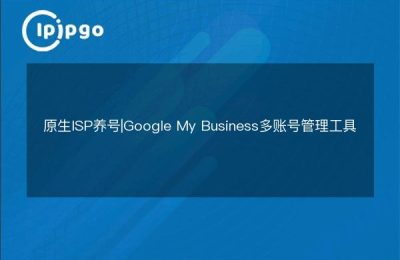
What factors actually influence residential IP prices?
The biggest headache many people have when choosing a proxy IP is the price. In fact, the pricing of residential IPs depends on three core elements:Resource coverage area,Protocol Support Typerespond in singingIP attributes (dynamic/static). For example, IP resources in Europe and the United States are generally more expensive than IPs in Southeast Asia by about 30% due to higher carrier costs; IPs that support the SOCKS5 protocol command a premium of 15%-20% over ordinary HTTP protocol IPs.
Taking ipipgo's service as an example, they packaged and consolidated resources from over 240 countries by region by building their own global residential IP pool. Users don't need to pay for redundant resources, for example, choosing the 'North America Dynamic IP Package' saves 40% cost compared to purchasing an all-region package. Of particular interest areDynamic IP billing model, a good service provider will offer a mix of volume + hourly billing to avoid wasted traffic.
| IP Type | Applicable Scenarios | Cost characteristics |
|---|---|---|
| Dynamic Residential IP | Short-term data collection, multi-account management | Step pricing based on usage |
| Static Residential IP | Long-term fixed operations, equipment bonding | Monthly packages are more cost-effective |
3 Hands-On Tips for Avoiding Price Traps
The first move isTesting IP puritySome low-priced IPs are actually blacklisted IPs that are reused. it is recommended that you get a test IP from the ipipgo website and check the IP registration time through the whois information. residential IPs that are newly registered within 3 months have a higher degree of purity.
The second move concernsFlow conversion ratio, don't be fooled by the "1G traffic for $1" gimmick. Real residential IP services need to calculate the effective success rate, for example, ipipgo's traffic consumption is based on theNumber of successful requestsDiscounting that no traffic is deducted for failed requests, this mechanism can reduce the actual cost by more than 20%.
The third trick to liveRegional portfolio strategy, putting the core business in cost-effective regions. Through the ipipgo background data Kanban can see, at present, Mexico, Turkey, the highest cost-effective residential IP, the same quality of the IP price than the United States is lower than the United States of America about 37%.
The Technology Behind Cost-Effectiveness
The key to truly reducing the cost of residential IP usage lies in the service provider'sNetwork scheduling capabilityThe intelligent routing system of ipipgo automatically avoids congested nodes, and the immediate benefit of this technology is the reduction of 20% traffic loss. Their residential IP pool updates 18%'s IP resources on a daily basis, ensuring that users get IPs that areLonger effective life cycleThe
What many users don't realize is thatProtocol compatibilityIt also affects the actual cost. ipipgo supports full protocol access including SOCKS5, which means there is no need to purchase additional protocol conversion tools. Especially for users doing automation business, IP switching can be done by directly calling the API, eliminating the cost of middleware development.
Frequently Asked Questions
Q: Why is there a 3x price difference between residential IPs in the same country?
A: The main difference is in the quality of the IP source, low-cost IPs may be recycled server room IPs, while ipipgo's residential IPs all come from home broadband, obtained through direct cooperation with local carriers.
Q: How do I verify that I'm buying a real residential IP?
A: Visit ipinfo.io in your browser and check the ASN number. The ASN for residential IPs will show up as "Broadband Carrier" instead of data center. ipinfo provides verification of original registration information for each IP.
Q: Is the Dynamic IP package suitable for long-term use?
A: Static IP is recommended for fixed services, but ipipgo's dynamic IP pool has 90 million+ resources, and the quasi-fixed IP effect can also be realized by binding IP segment function.
When choosing a residential IP service, you can't just compare the surface price, but focus on theIP Survival Raterespond in singingTechnical service capacity. Professional service providers like ipipgo provide real-time monitoring of the background, automatic switching of APIs and other features, which will not be reflected in the quotation, but can fundamentally reduce the cost of business risks. The next time you choose a service, it is recommended that you do a small-scale scenario test first, focusing on observing the actual performance of the IP in the business scenario.








